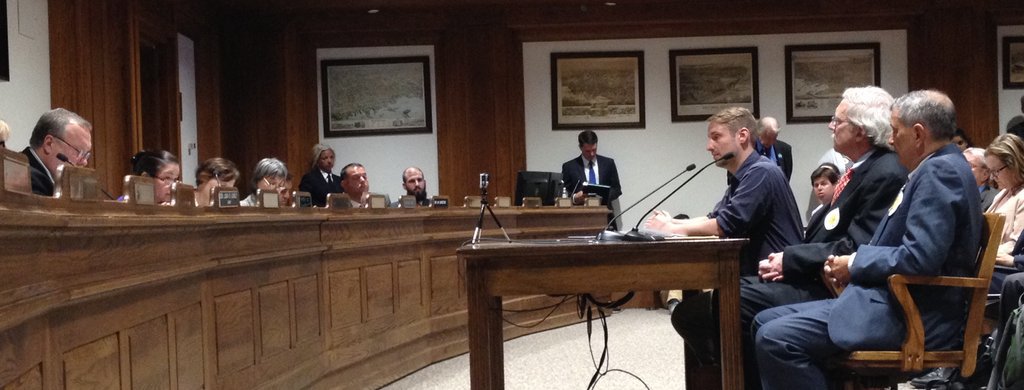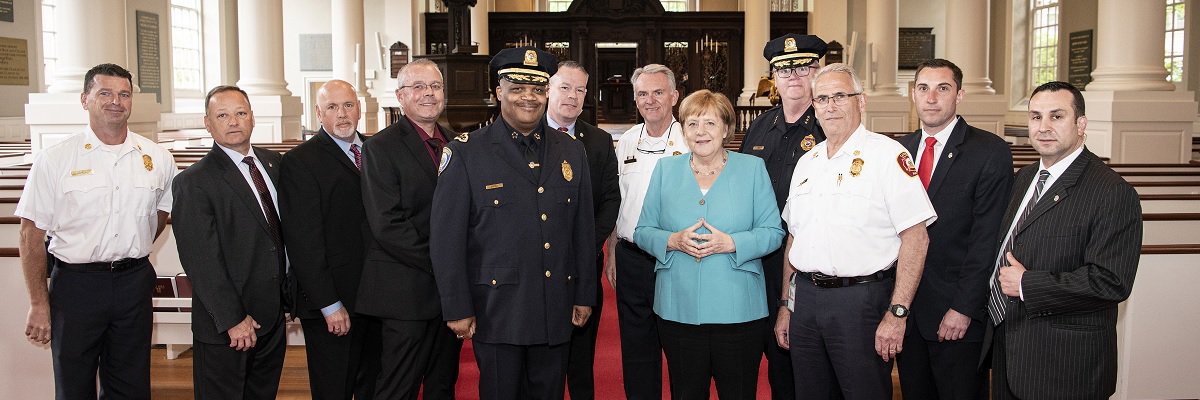MuckRock’s Shawn Musgrave testified today in support of H.2772 and S.1676, which would bring badly needed reform to the state’s antiquated and toothless public records law. You can read his remarks below.
Chairwoman Lovely, Chairman Kocot and and the Members of the Committee: Good morning. My name is Shawn Musgrave, and I am an investigative reporter with MuckRock, a Boston-based investigative news outlet. My reporting has been published in The Boston Globe, Boston magazine and Dig Boston, as well as in VICE, The Marshall Project and The Daily Beast, among other national outlets. MuckRock also administers a web service that makes it easier for journalists, public interest advocates and private citizens alike to file, track and share Freedom of Information requests at the local, state and federal levels.
Over the past three years, I have submitted hundreds of public records requests across every state, many of them in Massachusetts. While I have found some agencies and public employees to be helpful, courteous and timely in providing access to public documents and data, this is much more the exception. Particularly in Massachusetts, bureaucratic footdragging, unreasonable fees and excessive withholding or redaction are common. A range of deficiencies hamper our public records law’s effectiveness, and put Massachusetts far behind other states when it comes to transparency.
As an example, one of my recent projects investigated transfer of military equipment to police via the Pentagon’s 1033 program. When federal officials refused to release data indicating which state and local law enforcement agencies had received tactical rifles, armored vehicles and other equipment, last fall I submitted records requests for this information to the coordinating agency in each state. In Massachusetts, the coordinating agency for the 1033 program is the Massachusetts State Police.
After weeks of followup on all 50 requests, the Massachusetts State Police was one of only four state coordinating agencies that rejected my request for information on military equipment transfers to police. Unlike their counterparts in the vast majority of other states, records officials at the Massachusetts State Police claimed that releasing this basic allocation data would undermine public safety. Notably, a number of the police departments themselves were willing to disclose what equipment they’d received from the 1033 program, particularly after a White House panel found that the program lacked citizen oversight and transparency measures.
But Massachusetts officials refused to budge, and cited the broad public safety exemption in our public records statute to justify withholding the information. After the Supervisor of Records rejected my appeal, I had exhausted all practical options for making this critical data public. Under the current statute, Massachusetts courts cannot award attorney’s fees to successful plaintiffs in public records cases. Given this provision, it is next to impossible for me to find an attorney willing to go to court for these matters, unless they are willing to do so pro bono. Reporters at small outlets — not to mention concerned citizens and government watchdogs without the budget to cover a retainer or their own inhouse counsel — are effectively denied the accountability lever of litigation.
Only after the Pentagon quietly released nationwide data did the people of Massachusetts get to scrutinize the distribution of armored personnel carriers and other military equipment to law enforcement in their communities. Government accountability in Massachusetts should not depend on saner heads in Washington, D.C. to prevail by chance. While the data ultimately became public in this case, in so many others, reporters and citizens currently lack tools to challenge unnecessary secrecy in our state.
The proposed bills offer actionable measures to bring Massachusetts in line with minimal transparency best practices. These reforms are the first steps in a much longer process of opening Massachusetts government agencies to the public that they serve.
Combined with allowing attorney’s fees to successful litigants, the bills’ updated fee provisions will finally give agencies the bottomline incentive to lower processing costs for document requests. Photocopies simply do not cost 20 cents per page in 2015, and computer printouts certainly are not 50 cents per page. Likewise, a requester should not have to pay an attorney to review each individual page of every requested document, as too many agencies currently charge. The MBTA, for instance, should not be able to charge $942 for 200 pages in grant award documentation, including 15 hours of review time by the Senior Security Director at an hourly rate of $59.89. (For the math-adverse, that comes to more than $4 per page, and just over 13 pages reviewed per hour.) Agencies must not use steep fees to deflect scrutiny, as is too often the case under the current statute.
H.2772 and S. 1676 give agencies the guidance and incentives they need to meet their legal obligations of transparency. The bills provide citizens, watchdog groups and journalists with stronger tools to uphold their rights to disclosure. And these bills promote public trust that is so critical to effective governance.
Thank you for your time.
Best, Shawn Musgrave
Image by Beryl Lipton




